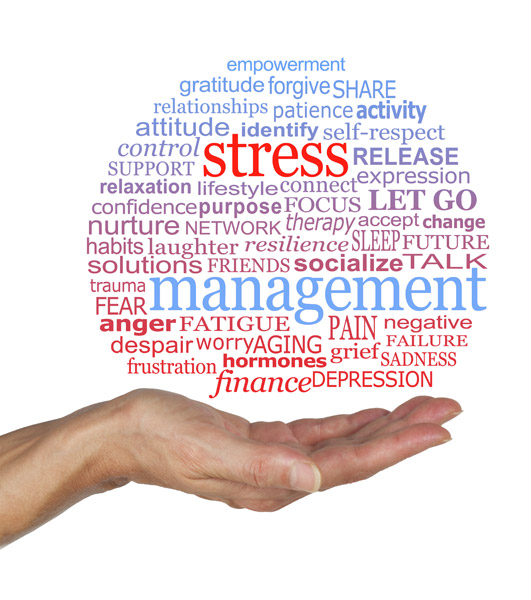We recently came across a meme that ended with:
“…unfortunately, we live in a world where if you break a bone, everyone comes to sign the cast. But if you tell people you are depressed, they run the other way.”

However, when the illness is depression, caregivers may feel like they have to “go it alone.”
That lack of support can also be felt by the person suffering from depression.
“When I found myself struggling in the winter of 2017 — when I was deep in the throes of a depressive episode; unable to work, eat, parent, or sleep — my phone was silent. No one asked me how I was. No one ‘stopped by,’ or offered to help, and my cabinets were empty,” writes Kimberly Zapata, founder of Greater Than: Illness, a nonprofit dedicated to empowering teens and young adults struggling with mental illness, in a Scary Mommy blog post.
Caregiving can take a toll on the caregiver, especially those with little support.
How Isolation Can Contribute to Depression
“Remarkably, 25% of Americans have no meaningful social support at all – not a single person they can confide in. And over half of all Americans report having no close confidants or friends outside their immediate family,” according to an article in Psychology Today.
The Family Caregiver Alliance warns that “feelings of isolation and loneliness can be caused by a withdrawal from previous habits and lifestyle. While friends continue on their daily routines, some caregivers are left to feel alone in their caregiving duties. Likewise, caregivers without support from other caregivers in similar situations may feel as though no one really understands their situation. This can lead to a withdrawal from social activities and relationships that they previously enjoyed.”

Can Stress Lead to Depression?
Stress, which can be emotional, spiritual or physical in nature, can also take its toll on caregivers.
“Too much stress, especially over a long time, can harm your health,” writes the Mayo Clinic. “As a caregiver, you’re more likely to experience symptoms of depression or anxiety. In addition, you may not get enough sleep or physical activity, or eat a balanced diet — which increases your risk of medical problems, such as heart disease and diabetes.”

- Stress can disrupt healthy coping strategies. For example, caregivers may be so “stressed out” that they may be exhausted; as a result, they skip their regular workout, eat junk food or engage in other unhealthy habits.
- Bad moods caused by stress generate further stress. A stressed caregiver may snap at their loved one, which causes tension in the relationship – resulting in anger, guilt and other stress-causing emotions.
- Strained relationships. Stress can lead to people being less emotionally available for others.
These stressors, especially if unaddressed, can lead to depressive feelings. While caregivers may recognize the symptoms of depression, the key is recognizing those symptoms in yourself. If a caregiver is feeling any depressive symptom for more than two weeks, they should talk with their doctor.
How to Care for a Caregiver

Mental Health America (MHA) offers a toolkit designed to help caregivers who are caring for those suffering from depression and other mental illnesses. The toolkit offers a variety of resources, including fact sheets on goal setting, treatment supports and how to prepare for an appointment.
According to its website, MHA believes “when we take the time to invest in our mental health, we can focus on creating an inclusive world for caregivers and their loved ones to thrive, together.”
The website, Sixty&Me includes a comprehensive article called “Caregiver Stress Prevention Guide,” that details different organizations that offer resources to support caregivers. Additionally, it provides some helpful tips that caregivers should consider including to recognize and respect your own feelings, how to practice self-care and finding outlets for stress release and expression.
To learn more information on this important topic, visit our other blog posts about this topic: https://genesight.com/blog/patient/running-on-empty-what-can-caregiving-parents-do/ and https://genesight.com/blog/patient/alzheimers-depression-what-caregivers-need-to-know/.
Our articles are for informational purposes only and are reviewed by our Medical Information team, which includes PharmDs, MDs, and PhDs. Do not make any changes to your current medications or dosing without consulting your healthcare provider.
The GeneSight test must be ordered by and used only in consultation with a healthcare provider who can prescribe medications. As with all genetic tests, the GeneSight test results have limitations and do not constitute medical advice. The test results are designed to be just one part of a larger, complete patient assessment, which would include proper diagnosis and consideration of your medical history, other medications you may be taking, your family history, and other factors.
If you are a healthcare provider and interested in learning more about the GeneSight test, please contact us at 855.891.9415. If you are a patient, please talk with your doctor to see if the GeneSight test may be helpful.




